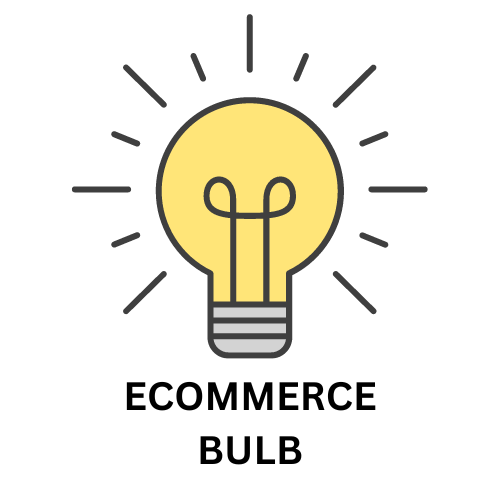In this blog post we are going to discover ideas about Optimizely Integration with Analytics tools, especially Google Analytics.
Integrating Optimizely with analytics tools is crucial for gaining a comprehensive understanding of your experiments’ impact and overall website performance.
Key Benefits of Integration:
- Comprehensive Data: Combine Optimizely’s experiment data with broader website metrics.
- Attribution Modeling: Understand how experiments influence key performance indicators (KPIs).
- Audience Segmentation: Create more refined audience segments for targeted experiments.
Popular Analytics Tool Integrations:
- Google Analytics: Seamless integration to track website traffic, user behavior, and conversions.
- Adobe Analytics: Offers advanced analytics features and integration with other Adobe products.
Integration Steps:
- Enable Integration in Optimizely: Activate the desired analytics tool integration within your Optimizely project settings.
- Set Up Custom Variables: Define custom variables in your analytics tool to capture experiment data.
- Data Mapping: Ensure consistent data definitions between Optimizely and your analytics tool.
- Test and Validate: Verify the integration by checking data flow and accuracy.
Additional Considerations:
- Data Privacy: Adhere to data protection regulations when sharing data between platforms.
- Data Volume: Large datasets might impact performance, so optimize data transfer and storage.
- Data Consistency: Ensure consistent data definitions and calculations across both platforms.

How do I Connect Optimizely to Google Analytics?

Integrating Optimizely with Google Analytics is crucial for gaining a comprehensive understanding of your experiments’ impact on overall website performance.
Step-by-Step Guide:
- Set Up Google Analytics: Ensure you have a Google Analytics account set up for your website.
- Install Optimizely Snippet: Place the Optimizely JavaScript snippet on your website.
- Create Custom Variables in Google Analytics: Define custom variables (eVars) to capture experiment data.
- Configure Optimizely: In your Optimizely account, set up custom conversion variables to match the eVars in Google Analytics.
- Implement Tracking Code: Add the necessary tracking code to your website to send data to Google Analytics.
- Test and Verify: Ensure data is being sent correctly by checking both Optimizely and Google Analytics reports.
Additional Tips:
- Use Data Layer: Leverage Google Tag Manager to manage and pass data between Optimizely and Google Analytics efficiently.
- Custom Events: Define custom events in Google Analytics to track specific user interactions within your experiments.
- Data Consistency: Ensure consistent data definitions and calculations across both platforms.
By following these steps, you can effectively integrate Optimizely with Google Analytics and gain valuable insights into your experiments’ performance.

What is the difference between Optimizely and Google Analytics?

Optimizely and Google Analytics are complementary tools for understanding and optimizing website performance, but they serve distinct purposes.
Google Analytics
- Focus: Comprehensive website analytics, tracking user behavior, traffic sources, and conversions.
- Capabilities: Provides a holistic view of website performance, including audience demographics, user flow, and goal tracking.
- Data Collection: Gathers extensive data on website interactions and user behavior.
Optimizely
- Focus: A/B testing, personalization, and feature flagging to optimize website performance.
- Capabilities: Enables experimentation with different website elements to improve conversion rates and user experience.
- Data Analysis: Provides insights into experiment performance and the impact of variations on key metrics.
Key Differences
| Feature | Google Analytics | Optimizely |
|---|---|---|
| Core Function | Website analytics | A/B testing and optimization |
| Data Collection | Broad range of data | Focused on experiment data |
| Analysis | Comprehensive reporting | Experiment-specific analysis |
| Experimentation | Limited A/B testing capabilities | Core functionality |
In summary, Google Analytics is essential for understanding overall website performance, while Optimizely is specialized for testing and optimizing specific elements of your website.
By using both tools together, you can gain a comprehensive understanding of your audience and implement data-driven improvements.

Optimizely Integration with Google Analytics – Cons & Pros:

Integrating Optimizely with Google Analytics offers significant advantages, but it’s essential to consider potential challenges as well.
Pros of Integration
- Comprehensive Data: Combines experiment data from Optimizely with broader website metrics from Google Analytics.
- Attribution Modeling: Understands the impact of experiments on key performance indicators (KPIs).
- Audience Segmentation: Creates more refined audience segments for targeted experiments.
- Data-Driven Decision Making: Enables informed decisions based on combined data insights.
Cons of Integration
- Data Complexity: Managing data from two platforms can be complex.
- Implementation Time: Integration setup might require technical expertise.
- Data Discrepancies: Ensure data consistency between both platforms to avoid discrepancies.
- Potential for Overwhelm: Too much data can lead to analysis paralysis if not managed effectively.
Key Considerations
- Clear Goals: Define specific objectives for the integration to focus efforts.
- Data Cleaning: Ensure data accuracy and consistency before analysis.
- Regular Review: Continuously monitor the integration to identify and address issues.
- Data Visualization: Utilize tools to visualize data effectively for insights.
By carefully considering the pros and cons, you can leverage the combined power of Optimizely and Google Analytics to optimize your website performance.

Optimizely Segment Integration:

Optimizely Segment integration allows you to efficiently collect, unify, and route customer data to Optimizely for enhanced experimentation and personalization.
Key Benefits of Integration:
- Unified Customer View: Combines data from various sources into a single customer profile.
- Improved Experimentation: Utilize enriched customer data for targeted experiments.
- Enhanced Personalization: Deliver more relevant experiences based on comprehensive customer insights.
- Data Privacy Compliance: Segment’s data governance features can help with compliance.
How it Works:
- Data Collection: Segment collects customer data from various sources (websites, mobile apps, etc.).
- Data Unification: Creates a unified customer profile by combining data from different sources.
- Data Enrichment: Adds additional data points to the customer profile through integrations.
- Data Routing: Sends relevant data to Optimizely for experimentation and personalization.
Key Features of Optimizely Segment Integration:
- Customer Attributes: Pass customer attributes (e.g., demographics, purchase history) to Optimizely for segmentation.
- Events: Send custom events to Optimizely for experiment triggering and measurement.
- Identities: Map user identities across different platforms for consistent tracking.
- Data Privacy Controls: Leverage Segment’s data governance features to protect customer data.
By integrating Optimizely with Segment, you can create a more robust experimentation and personalization platform, ultimately leading to improved customer experiences and business outcomes.



Leave a Reply